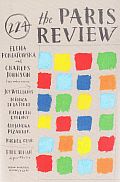IIsland traffic slows to a halt
as screeching gulls reluctant
to lift heavenward
congregate like mourners in salt-
crusted kelp, as the repellent
news spreads to colder shores:Sir Derek is no more.
Bandwidths, clogged by streaming
tributes, carry the pitch
of his voice, less so his lines, moored
as they are to a fisherman’s who strains
in the Atlanticthen hearing, too, drops his rod, the reel
unspooling like memory till
his gaped mouth matches
the same look in his wicker creel,
that frozen shock, eyes marble
a different catch.Pomme-Arac trees, sea grapes,
and laurels sway, wrecked having lost
one who heard their leaves’
rustic dialect as law, grasped
their bows as edicts from the first
garden that sowed faith—and believe he did, astonished
at the bounty of light, like Adam,
over Castries, Cas-
en-Bas, Port of Spain, the solace
of drifting clouds, rains like hymns
then edens of grass,ornate winds on high verandas
carrying spirits who survived
that vile sea crossing,
who floated up in his stanzas,
the same souls Achille saw alive,
the ocean their coffin—faith, too, in sunsets, horizons
whose auric silhouettes divide
and spawn reflection,
which was his pen’s work, devotion
twinned with delight, divining
like a church sexton.Poetry is empty without
discipline, without piety,
he cautions somewhere,
even his lesser rhymes amount
to more than wrought praise but amplify
his poems as high prayer.So as to earn their wings above,
pelicans move into tactical
formation then fly
low like jet fighters in honor of
him, nature’s mouth, their aerial
salute and goodbye.
2Derek, each journey we make,
whether Homeric or not,
follows the literal wake
of some other craft’s launch,meaning to sense the slightest
motions in unmoving waters
is half the apprentice’s
training before he oarsout, careful to coast, break-
ing English’s calm surface.
What you admired in Eakins
in conversation at some café(New Orleans? Philly?) was
how his rower seemed to listen
to ripples on the Schuylkill as
much as to his breath, both silenton his speaking canvas.
Gratitude made you intolerant
of the rudeness of the avant-
garde or any pronouncementsof the “new,” for breathing is
legacy and one’s rhythm,
though the blood’s authentic
transcription, hems usto ancestors like a pulse. This,
I fathom, is what you meant
when exalting the merits
of a fellow poet: that manis at the center of language,
at the center of the song.
Yet a reader belongs to another age
and, likely to list our wrongsmore than the strict triumphs
of our verse, often retreats
like a vanished surf, spume
frothing on a barren beach.The allure of an artist’s works
these days is measured
by his ethics, thus our books,
scrubbed clean, rarely mentionthe shadowless dark that settles
like an empire over a page. Your nib,
like the eye of a moon, flashed into sight
the source of Adam’s barbaric cry.
3Departed from paradise,
each Nobody a sacrifice,
debating whose lives matter
whereon a golden platterour eyes roll dilated by hate
from Ferguson to Kuwait.
You, maître, gave in laughter
but also for the hereafteran almost unbearable
truth: we are the terrible
history of warring births
destined for darkest earth.So as cables of optic lights
bounce under oceans our white
pain, codified as they are
and fiber-layered in Kevlar,we hear ourselves in you,
where “race” exiles us to
stand lost as single nations
awaiting your revelations.A shirtless boy, brown as bark,
gallops alongshore, bareback
and free on a horse until he fades,
a shimmering, all that remains.
In Memory of Derek Alton Walcott
Feature Date
- April 5, 2018
Series
Selected By
Share This Poem
Print This Poem
Copyright © 2018 by Major Jackson
All rights reserved.
Reproduced by Poetry Daily with permission

Spring 2018
New York, New York
Editor
Emily Stokes
Managing Editor
Kelly Deane McKinney
Poetry Editor
Srikanth Reddy
Since its founding 1953, The Paris Review has been America’s preeminent literary quarterly, dedicated to discovering the best new voices in fiction, nonfiction, and poetry. The Review’s renowned Writers at Work series of interviews is one of the great landmarks of world literature. Hailed by the New York Times as “the most remarkable interviewing project we possess,” the series received a George Polk Award and has been nominated for a Pulitzer Prize. With the December 2016 redesign of the Review’s website, the complete digital archive of everything we’ve published since 1953 is available to subscribers. In November 2017, the Review gave voice to nearly sixty-five years of writing and interviews with the launch of its first-ever podcast, featuring a blend of classic stories and poems, vintage interview recordings, and new work and original readings by the best writers of our time.
Poetry Daily Depends on You
With your support, we make reading the best contemporary poetry a treasured daily experience. Consider a contribution today.



